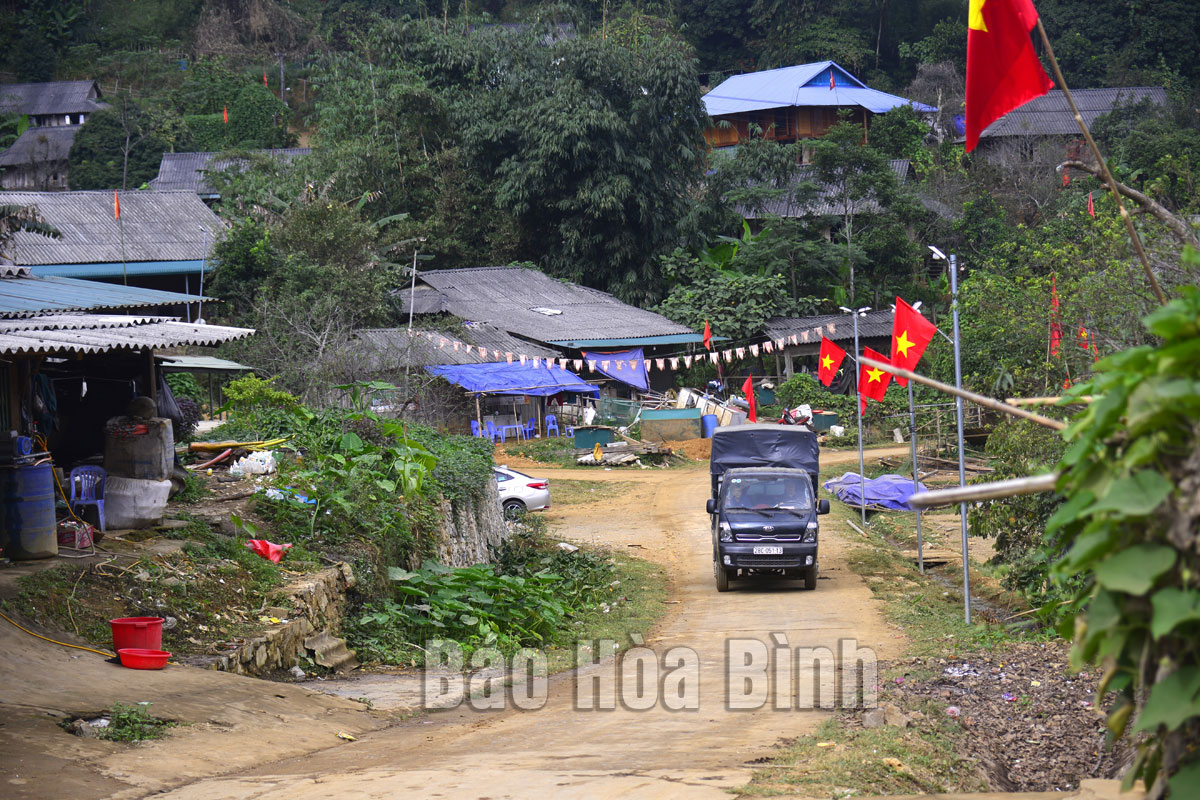
(HBO) – Local people in the mountainous commune of Van Son in Tan Lac district of Hoa Binh province for the last few years have developed tourism activities to improve their incomes besides traditional farming.
Improved roads in Ngo Luong commune, Tan Lac district, help boost local socio-economic development.
As the provincial Party Committee and People’s Committee
approved a resolution and programme on tourism development in mountainous
communes, residents are excited about the support that they will get to develop
community-based tourism models, and sustainable tourism, and increase their
incomes.
As one of the four ancient Muong regions and the cradle of the famous Hoa Binh
culture, the unique culture and peaceful landscape of Tan Lac district – former
known as Muong Bi - is an important resource to help the district develop
sustainable tourism.
Besides tourism, the district's authorities last year concretised the
resolutions of the Party Central Committee and the province, and issued
resolutions, schemes, plans, and action programmes to comprehensively implement
tasks in building the Party and political system.
Specifically, the district issued resolutions and directives on agricultural
and rural development, restructuring crops and livestock, attracting
investment, and supporting investors.
Production areas were planned associated with the new-style rural area, for
example, vegetable/fruit growing areas are developed in highland communes,
aquaculture growing areas in Suoi Hoa commune, pomelo-growing areas in communes
along road 12B, and urban areas in Man Duc town and Phong Phu commune.
In 2022, the district fulfilled or exceeded 14 out of 16 socio-economic goals
and saw total social investment of 2.54 trillion VND, and income per capital
reached 35.5 million VND.
In 2022, red-fleshed pomelo grown in Tan Lac district was first exported to the
UK, opening up opportunities to build a commodity production area linked to the
consumption market.Up to now, the district has 240 hectares of
red-fleshed pomelo meeting VietGap and organic farming standards.
The district is home to "Khai ha" (Summer opening) festival which was
recognised as a national cultural heritage. Meanwhile, Mo Muong is being
proposed for recognition as intangible cultural heritage of humanity. This is a
great potential and advantage for the district to develop tourism.
The district actively directed land clearance work for tourism projects.
Dinh Anh Tuan, Secretary of the Tan Lac District Party Committee, said that the
district is comprehensively implementing the Party and political system
building work, upholding the role of cadres and party members in performing
political tasks, strengthening land management, site clearance, and removing
difficulties for investment projects.
The district has also paid much attention to implementing solutions to preserve
and develop Muong Bi culture in association with building a new countryside,
improving the quality of people's lives./.
Hoa Binh province is undergoing a dynamic transformation amid Vietnam’s national digital transition. Building on Poliburo’s Resolution No. 57-NQ/TW on breakthroughs in science, technology, innovation, and national digital transformation, the province has rolled out a wide range of practical action plans. A standout initiative is the "Digital Literacy for All” movement, an effort to ensure that no one is left behind in the digital era.
Hoa Binh province is undergoing a dynamic transformation in the wake of the national digital transformation movement. Building on Resolution No. 57-NQ/TW of the Politburo on breakthroughs in science, technology, innovation, and national digital transformation, the province has implemented a wide range of practical action plans. A standout initiative is the "Digital Literacy for All” movement ambitious effort to ensure that no one is left behind in the digital age.
With a spirit of unity and proactive problem-solving, the Party Committee, the government and the people of Dong Lai Commune (Tan Lac District) have made great strides in implementing the resolutions of the 24th Party Congress of the commune for the 2020 - 2025 term. Focusing on leadership and practical actions, the commune has brought the Party’s resolutions into daily life, creating strong impacts and pushing the local development forward.
Amid the nationwide push for digital transformation, young people in Hoa Binh Province are stepping up as dynamic pioneers, applying technology to enhance Youth Union operations and expand the reach of youth-led initiatives. Through creativity and adaptability, Youth Union organizations at all levels have introduced a series of practical solutions, contributing to modern governance and community development.
In recent years, An Nghia commune, located in Lac Son district, has stepped up administrative reform, focusing on improving the quality and efficiency of its single-window service unit for receiving and processing administrative procedures. These improvements have helped create favourable conditions for local residents and organisations to handle administrative procedures, contributing to the commune’s broader socio-economic development.
The Prime Minister-approved master plan to develop the multi-use value of forests ecosystems through 2030, with a vision to 2050, aims to improve the management and sustainable use of forest resources, create jobs, increase incomes, and improve the living standards of ethnic minorities, people in mountainous and remote areas, forest workers and those living near forests.



